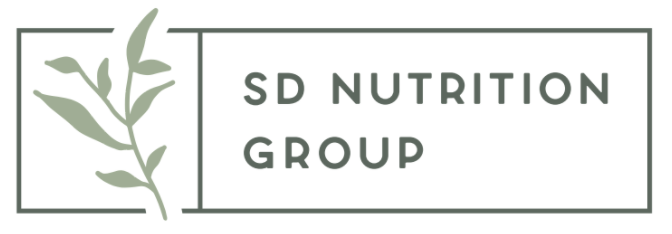What Is Normal Eating?
Dieting and disordered eating have been normalized in our culture. Counting calories, skipping meals, following diet plans with strict rules- all normalized. It’s normal to talk about diets, weights, cheat days, etc. in social settings. But just because it’s been normalized by diet culture doesn’t mean that it is normal, or that it should be.
Diets are harmful. They don’t work. They disconnect you from your body and create fear, mistrust, and stress around food and feeding yourself. Normal eating (which I consider to go hand-in-hand with intuitive eating) works with your body’s natural cues, not against them, and allows for eating to be a pleasurable, low-to-no stress activity in your life. Here are some key points to what normal eating should entail:
Normal eating is listening and responding appropriately to hunger/fullness cues.
Ok, seems easy enough. But what about all those times you tried to convince yourself you weren’t that hungry because you were on a diet and it wasn’t time for your next meal or snack yet. Or you tried chugging water or coffee or diet soda to try to get rid of those hunger pangs. Diet culture disconnects us from our body’s natural hunger/fullness cues. It teaches us that we can’t trust ourselves to know how or when to feed ourselves. The ability for our bodies to tell us when and what and how much food they need is amazing and should be respected and honored. Normal eating is listening to those signals, as best we can most of the time. We won’t always get it exactly right, and that’s ok. There’s no such thing as perfect eating.
Normal eating is giving yourself unconditional permission to eat all foods.
Again, listening to and respecting your body’s cues is key here. Normal (and intuitive) eating respects food desires and cravings, instead of ignoring them. Unconditional permission to eat all foods creates an even playing field, so for example, chocolate chip cookies are just as available an option as carrots. And not just one cookie you think you can sneakily get away with- as many as are satisfying and feel good to you in that moment. Unconditional permission to eat enjoyable foods eliminates the restrict-binge cycle and cultivates peace with food. When you know you can eat something and truly get enough, it’s much easier to stop when you feel comfortably full.
Normal eating is practicing gentle nutrition as it feels right to you.
To quote Intuitive Eating, “make food choices that honor your health and taste buds while making you feel food”. Nutrition is important. But, nutrition should be just one way we care for ourselves and our health. Many people think that intuitive eating completely disregards nutrition information, and that’s just not true. As a dietitian, I’ll be one of the first to advocate for the role of nutrition in health. But diet culture gets caught up in the nutritional nitty-gritty and spreads food fear. We can certainly use our knowledge of nutrition in making informed food decisions, but it shouldn’t be the only factor. And we shouldn't be so preoccupied or scared of “unhealthy” foods that we miss out on enjoyable eating experiences. Denying yourself pleasure in eating can lead to overeating in the long run. Healthy eating is about both eating a balance of nutritious foods and having a healthy relationship with food.
Most importantly, normal eating is flexible and can look differently day to day.
Normal eating can look different every day. Sometimes our food choices are more limited than others, like when we’re traveling. Sometimes we have a full pantry to choose from. We may eat differently when we’re happy, sad, or anxious. Maybe we have a really busy day and lunch is rushed. When we trust ourselves to make food choices based on our own internal cues, we can competently feed ourselves in any situation. We don’t have to feel guilty about eating less nutrient-dense foods if that’s what the situation calls for. Normal eating looks different on every one. It’s also true that hunger and fullness cues can vary from day to day based on stress level, activity level, sleep, what you ate yesterday, and a number of other factors. You may need more food from one day to the next in order to feel satisfied, and that’s ok! You are the only one who can know what it feels like to be in your body, and you get to choose how to nourish it.
Ellyn Satter, author of the book Secrets of Feeding a Healthy Family, has an awesome definition of normal eating that you can read here.
